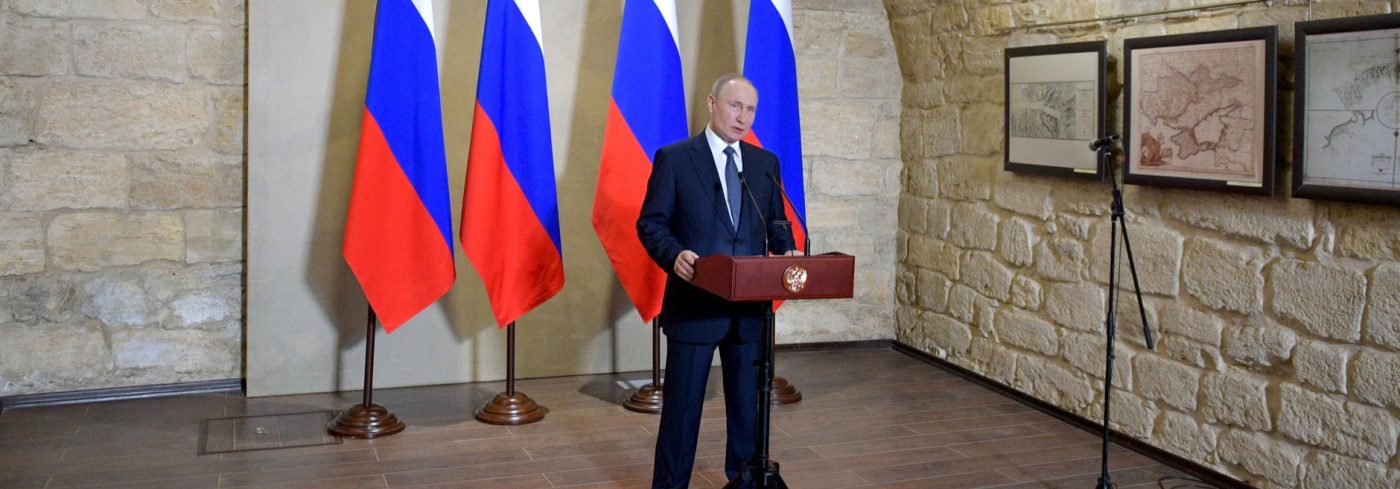As the COVID-19 crisis gripped the rest of the world, Russia initially seemed insulated from its effects. Reported cases were surprisingly low, as the Kremlin focused on sending aid to affected European countries. On April 1, a Russian military plane landed in New York with medical supplies accompanied by much media fanfare. Now, with cases spiking, the Kremlin is still sending mixed messages to Russians — extending a “vacation order” through April 30 while refusing to cancel preparations for the massive May 9 Victory Day celebrations. Meanwhile, President Vladimir Putin is taking a backseat, letting the government and local officials bear the brunt of the response. At the same time, Russia is spreading disinformation and conspiracy theories about the virus and the Western response
On April 7, CEPA hosted a discussion with three experts, moderated by Dr. Alina Polyakova, on how the Kremlin is coping with the pandemic. Participants examined what is happening on the ground in Russia; why cases were so low; the impact of the Kremlin’s recent shift to a more aggressive response; messaging at home and abroad; and what to make of the supposed humanitarian assistance to the United States and elsewhere. Their remarks are condensed and paraphrased for clarity.
Joshua Yaffa, the Moscow correspondent of the New Yorker, noted that the number of cases, while rising, is comparatively lower than in Italy, Spain, and the United States. This is probably due to the earlier measures the authorities took to restrict the movement of citizens, especially in Moscow: checking incoming aircraft from abroad; closing of its borders with China; and the relative autarky of Russia’s economy. The figures are likely broadly correct. Widespread social media use would make it difficult for the authorities to conceal a catastrophe. Putin, he added, wants to play “good cop” and be able to delegate direct responsibility for managing the crisis to the government and the regions.
Nataliya Vasilyeva, correspondent for the Daily Telegraph, concurred, noting that the Moscow municipal authorities have taken broadly effective measures to control the virus. Stores have food. Many people are self-isolating. However, the contagion could spread more easily outside the capital, where the quality of medical services is lower.
Patrick Tucker, technology editor of Defense One, discussed the three types of messaging the Kremlin has been using to take advantage of the crisis: the sending of medical supplies to Italy and the United States, whose utility is unclear but may have some propaganda effect; stories on RT and Sputnik which do what they always do — elevate “fringe” voices who advocate extremist points of view and legitimate them; and targeted messages like those disseminated into Latvia accusing NATO troops of carrying the virus. No one knows, Tucker said in response to a question, whether COVID-19 will impact the readiness of the Russian military.
CEPA president Dr. Alina Polyakova concluded the session by noting that the regime will almost certainly survive the crisis. According to public opinion polls, Putin’s approval rating remains relatively high (more than 60%). But Polyakova emphasized that answers to many additional questions raised by the pandemic are uncertain. Over the short term, the Victory Day celebrations may, in the end, be postponed. The technology needed to monitor the spread of the disease among citizens may remain as another tool of state control.
Common Crisis is a CEPA analytical series on the implications of COVID-19 for the transatlantic relationship. All opinions are those of the author and do not necessarily represent the position or views of the institutions they represent or the Center for European Policy Analysis.
Europe’s Edge is CEPA’s online journal covering critical topics on the foreign policy docket across Europe and North America. All opinions are those of the author and do not necessarily represent the position or views of the institutions they represent or the Center for European Policy Analysis.





